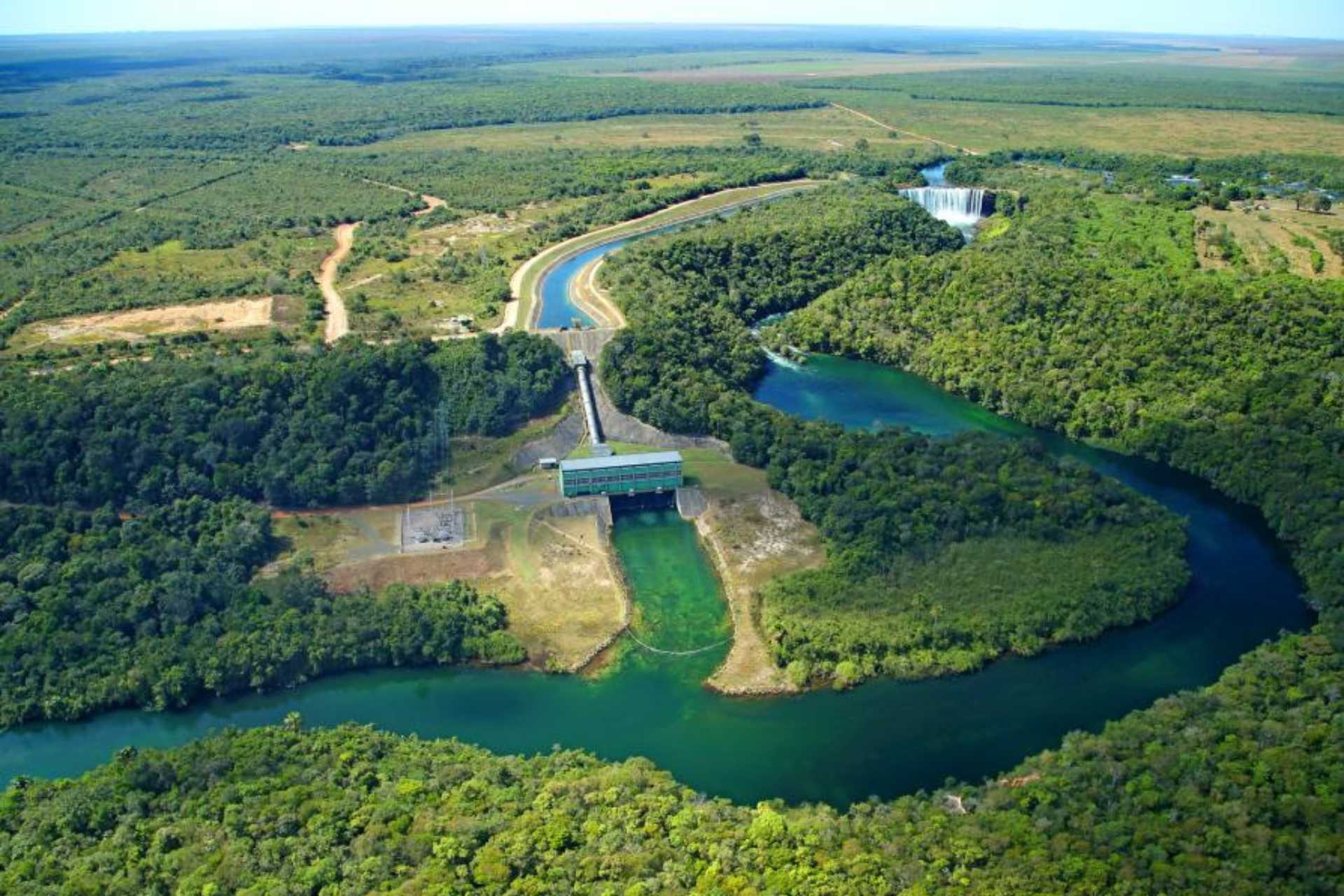
Get the latest climate technology news directly to your inbox.
Brookfield looking to raise $25 billion for energy transition funds
The company said it has invested over $100 billion in energy transition and renewables projects so far.

Brookfield invests in Elera Renováveis, a Brazilian renewables company with 44 hydroelectric plants and 19 wind farms. Photo credit: Brookfield

Brookfield invests in Elera Renováveis, a Brazilian renewables company with 44 hydroelectric plants and 19 wind farms. Photo credit: Brookfield
A major asset manager’s role in the energy transition is poised to get bigger.
- The top line: Brookfield Asset Management aims to raise more than $25 billion across two new clean energy funds. It has already raised $10 billion for the first — dubbed the Brookfield Global Transition Fund — and plans to close in the third quarter of 2024. The second fund is emerging markets-focused.
- The market grounding: This comes in a strange moment for climate financing. On the one hand, energy transition investments reached a new high of $1.8 trillion in 2023, with the United States alone investing $303 billion. On the other, developers face a slew of challenges in deploying clean energy projects, including a growing interconnection backlog and shortages of transformers and other key materials.
Brookfield is one of the largest asset managers in the world. The company said it has invested over $100 billion in energy transition and renewables projects so far, and has nearly 33,000 megawatts of generating capacity across its renewables assets, according to its website. Much of that investment has come in recent years.
Its current raise for its second energy transition fund is on track to exceed the record $15 billion of its first, which closed in June 2022. The new fund’s seed portfolio includes an onshore renewables developer based in the United Kingdom, and a solar development partnership based in India.
The investor’s sheer size and scope means that it is largely insulated from the problems plaguing certain geographies. If certain projects get stuck in the U.S. interconnection backlog, for instance, Brookfield can instead buy or develop projects in Canada or Chile or India. The company has the flexibility to go where it can get projects completed.
The Brookfield raise — especially coming mere weeks after BlackRock’s $12.5 billion deal to acquire the infrastructure-focused private equity firm Global Infrastructure Partners — speaks to the fact that corporate off-takers are hungry for clean energy projects.
Connor Teskey, head of Brookfield’s renewable power and transition business, said in a press release that “corporate demand for decarbonization technologies is now the primary driver of transition investment, delivering significant economic value as well as meaningful environmental benefits.”
Despite the surging demand, however, recent research from Princeton suggests that the environmental benefits of corporate renewable electricity purchases specifically are harder to achieve than they used to be. The paper found that as the grid becomes increasingly clean, it’s only through 24/7 hourly matching with clean electricity — rather than annual matching — that these corporate buyers can make a significant dent in emissions.
Teskey also mentioned the need to supply “reliable, clean power to the surging data and technology sector” as one trend fueling investor interest in the energy transition. The rising energy demand of artificial intelligence looms large over this space, especially in light of a recent International Energy Agency report that found that data center energy use could double by 2026. (Just one week ago, Google announced its largest ever offshore wind investment, geared specifically toward decarbonizing its data centers in Europe.)




.jpg)
